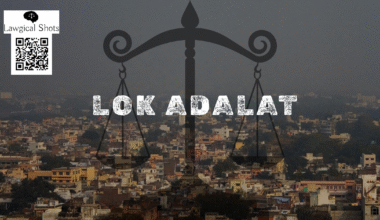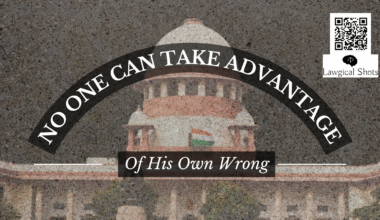What if a father decides to file complaint on behalf of his daughter against her ex-husband’s parents, even after she has remarried? Does a father has authority or right to take action against her ex-husbands’ Parents regarding her daughter’s Stridhan or matrimonial property after a long period, without any formal consent of daughter? Is it possible through a legal document? Can someone file complaint on behalf of another person? If so, what is that document called? Can an agent file complaint long after dispute has been settled? Can someone initiate criminal proceedings merely out of anger or personal grudge, without legal authority or direct involvement in the matter? Will the court allow this?
Let’s understand this question in detail as discussed by the Supreme Court in the case titled Mulakala Malleshwara Rao v. State Of Telangana (2024) where the court explained that Stridhan belongs only to women. Her family members cannot assume legal standing without permission, and criminal law must not be misused as a means for revenge. In the court’s words “justice cannot be pursued through emotionally driven litigation; the legal process must not be weaponized to satisfy personal anger or frustration.”
What Is Stridhan?
The term “stridhan” describes the property or valuable presents that are freely given to a woman prior to, during, or following her marriage. According to Hindu law, a woman’s stridhan is her sole and undivided property. Neither her husband nor her in-laws may claim any ownership rights on her stridhan. It can only be possessed, used, transferred, or recovered by her.
Who Is Eligible To Claim Stridhan?
To recover Stridhan, only woman has the right, it is her personal right. No one on her behalf can file a lawsuit. However, if she formally authorizes a close family member through a legal document called Power of Attorney, then third party action is permitted. Her consent to permit another person shall be free consent, and not under someone’s pressure.
Power of Attorney for Court Proceedings
The document through which one person can authorize another to be represented before the Court is known as a Power Of Attorney. A person can legally authorize other person to act on his behalf in a Court case.
Mulakala Malleshwara Rao v. State Of Telanagana ( 2024)
The central idea in this case is whether a father can file a criminal complaint against her ex-husband’s parents for failing to return Stridhan, years after her divorce and remarriage, without his daughter’s permission. Can criminal law be used as a weapon for revenge, frustration, or personal grudge by someone who is not legally or directly connected to the matter?
Factual Background
In 2021, the complainant filed a criminal complaint against his daughter’s former in-laws , claiming that they had not returned her jewelry (stridhan) that had been given to his daughter during her first marriage in 1999. In 2016, his daughter obtained a divorce in the United States by mutual consent. At that time, a legally binding Separation Agreement was used to settle all material and financial issues.
In 2018, she got married again. The complainant filed a complaint in 2021 under Section 406 of the Indian Penal Code and Section 6 of the Dowry Prohibition Act, arguing that the former in-laws had wrongfully retained stridhan after years had passed and marital issues had been resolved. The current appeal before the Supreme Court resulted from the Telangana High Court’s denial of the accused’s request to have the FIR quashed under Section 482 of the Criminal Procedure Code.
Laws for Stridhan Recovery
Some important statutory provisions had to be interpreted and applied in this case. It includes Section 6 of the Dowry Prohibition Act, 1961, which deals with the non-return of dowry articles, and Section 406 of the Indian Penal Code, which deals with the crime of criminal breach of trust. Section 482 of the Criminal Procedure Code, which gives High Courts the authority to quash (cancel) criminal proceedings . Furthermore, it was thought that Section 14 of the Hindu Succession Act, 1956, stated that stridhan is a Hindu woman’s sole property. To further clarify who can lawfully act on behalf of another person and under what circumstances, the Court also cited the Power of Attorney Act, 1882, stressing that a valid power of attorney is necessary in order to start legal proceedings on someone else’s behalf.
A list of case laws that were relied upon this case:
- Pratibha Rani v. Suraj Kumar, (1985)
The Supreme Court held that stridhan is absolute property of a married woman, and her husband or in-laws have no right to keep it. This case was relied on to reaffirm a woman’s exclusive right over stridhan.
In the context of this case, built on in-laws’ failure to return stridhan is considered a criminal breach of trust under Section 406 IPC. It was cited to highlight that the woman alone is the owner and has the right to take legal action over stridhan.
- Maya Gopinath v. Anoop S.B., (2024)
A recent ruling reiterated that the woman alone, not her family, is in charge of her stridhan and has the legal right to claim it. This ruling upheld the Court’s decision to dismiss the father’s locus standi in this particular case.
- Mala Kar v. State of Uttarakhand. (2024)
The woman’s post-divorce stridhan claim was granted by the court, confirming that claims that are made by the rightful owner herself can still be legitimate even if they are delayed. The Court made a distinction between it and the current case, in which the daughter had not made any claims.
- Prof. R.K. Vijayasarathy v. Sudha Seetharam,(2019)
The three essential components of criminal breach of trust under Section 406 IPC entrustment, dishonest misappropriation, and breach of trust were made clear by this case. Using this test, the Court concluded that the current case did not meet any of the requirements.
The Court ruled that a dowry or other gifts given at marriage do not always indicate entrustment to the in-laws. It needs to be amply demonstrated, which was not done in this instance.
- State of Haryana v. Bhajan Lal, (1992)
Guidelines for dismissing FIRs under Section 482 CrPC were established by this historic case, particularly in cases where there is no crime that can be prosecuted or when the case was filed dishonestly. These guidelines were used by the Supreme Court to suppress the FIR.
- Madhavrao Scindia v. Sambhajirao Angre, (1988)
Cited along with Bhajan Lal, this case reinforced that criminal proceedings can be quashed when they are oppressive or an abuse of process.
- Neeharika Infrastructure v. State of Maharashtra, (2021)
Referred for the principle that courts can use inherent powers cautiously when there’s clear abuse of criminal process.
- Peethambaran v. State of Kerala, 2023
Also cited for reinforcing the Bhajan Lal principles on quashing proceedings.
- Kishan Singh v. Gurpal Singh, (2010) 8 SCC 775
The Court emphasized that criminal law should not be misused by “chagrined and frustrated litigants” to harass others out of personal vengeance. It was directly quoted in this judgment.
- Rohtash v. State of Haryana, (2019) 10 SCC 554
This judgment followed Kishan Singh and was cited to stress that courts must prevent emotionally motivated criminal litigation filed without legal basis.
Father has no right on Daughter’s Stridhan
When the Supreme Court decided the locus standi and criminal process abuse cases, it made it clear that the woman’s stridhan is her only property and that only she has the legal right to file a lawsuit to reclaim it. The Court emphasized that if there is no legitimate Power of Attorney, a father or other family member cannot file a complaint on her behalf, even with the best of intentions.
Furthermore, it was noted that the father, who was the complainant, lacked legal standing because his daughter was competent, alive, and had not given him permission to act. The daughter remarried in 2018, long before the FIR was filed in 2021. The Court observed that the entire marital dispute had been resolved through a Mutual Separation Agreement at the time of divorce. Because of this, the complaint was both legally unsupportable and noticeably delayed.
The abuse of criminal law was also denounced by the Court, which held that it cannot be used as a weapon to vent personal resentment or frustration, particularly by those who are not directly impacted. It reaffirmed that emotionally motivated or dishonest litigation is an abuse of the legal system, drawing on the principles established in Bhajan Lal and Kishan Singh.
The Court’s final ruling laid that the complainant’s criminal proceedings were filed with an indirect motive, lacked proper authorization, and lacked merit. The Supreme Court consequently dismissed the FIR and the criminal case, ruling that such behavior is illegal and that seeking justice through revengeful or indirect means is not appropriate.
Conclusion
The Supreme Court stated that only the woman has the legal right to claim her stridhan, which is her sole property. It is illegal to file a criminal case against her without getting her permission, particularly after a divorce or remarriage. The Court noted that personal grudges cannot be settled through criminal law. Abuse of process occurs when litigation is emotional or delayed without the necessary standing. The FIR and related proceedings were thus properly quashed.
The Supreme Court judgment on father’s right on daughter’s stridhan has been summarised by our intern, Ms Chaitali Bhivgade. She has been assisting the team in bringing informational legal blogs.








